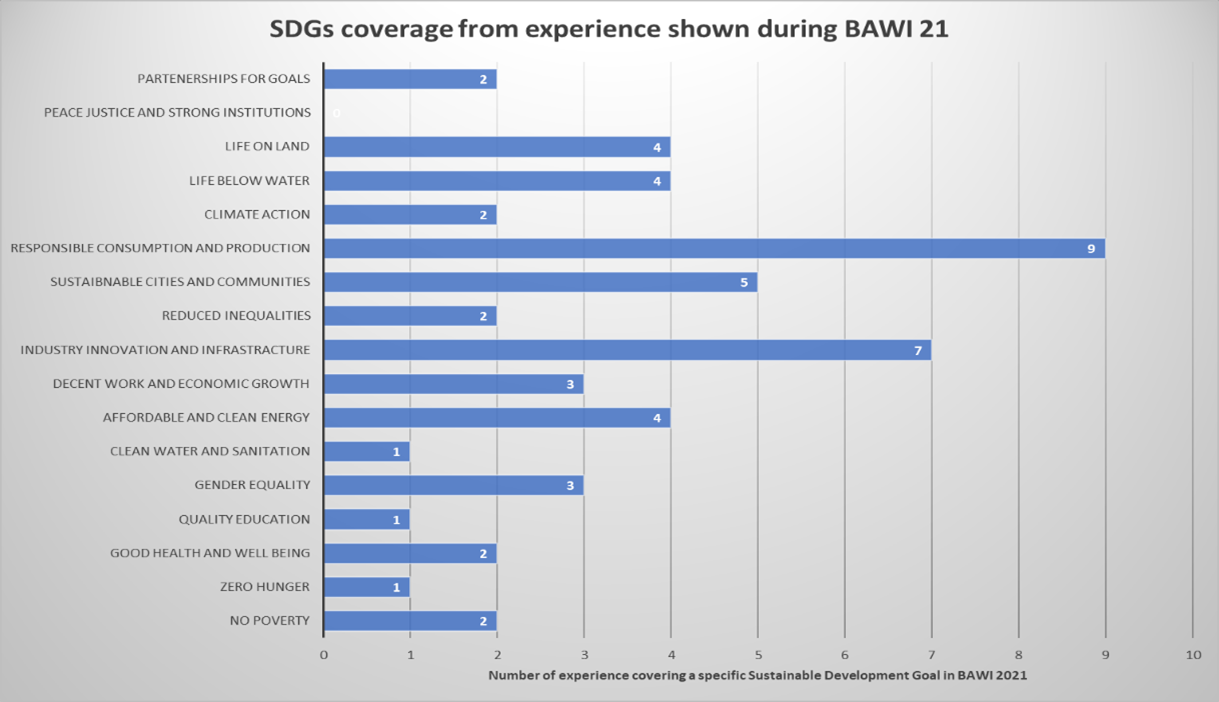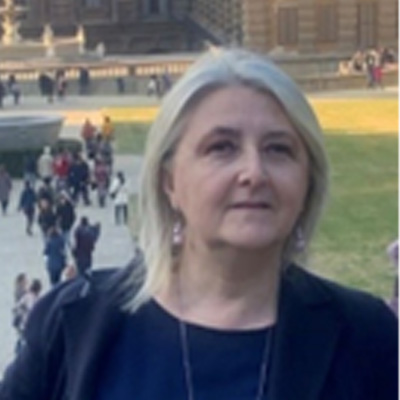Business Analysis and Sustainability
A Review of the BAWI Experience
Receive free IIBA updates and exclusive content!
Let’s take a moment to debrief on an important topic and great event hosted by IIBA’s Italy Chapter. With a focus on sustainability, the eleventh edition of BAWI (Business Analysis for Sustainability) took place as an online event from October 18 – 20, 2021. This event turned-out to be an enormous success with large engagement from the community, showing how sustainability is a huge concern for business analysis professionals across all industries.

The introduction to the main topics were given by the President of the IIBA Italian Chapter, Prassede Colombo. She started the event by underlying the key role of business analysis using a lens of sustainability and articulated that business analysis helps organizations understand the real problems, actions and solutions needed to be taken in order to address today’s climate change crisis.
The following quotes from global thought leaders demonstrate how Business Analysis is closely tied to sustainability in today’s economy:
World Economic Forum
Microsoft CEO Satya Nadella
During the event there were four main themes discussed about sustainability in relation to business analysis. These themes include Circular Economy, Sustainability in Action, Human Factor, Business Analysis. Below is a summary on the key ideas of each theme and what was shared by the speakers.
Circular Economy
The topic of Circular Economy was addressed by Valeria Bonghi, a volunteer at IIBA Italian Chapter and Donatella Pavan, President of Giacimenti Urbani.
Valeria Bonghi pointed out Circular Economy key concepts and stressed on the importance of the hierarchy of waste: it sets the priorities of the program according to sustainability. Donatella Pavan on her side spok about the Circular Economy as an individual responsibility; it deals with raw material depletion rates and recycling rates, depending largely on our daily habits and behaviours. She presented the “Global” Approach of Giacimenti Urbani and the 3R-Rules for the community of urban miners: Reduce, Reuse, Repair.
Domiziana Illengo, Marketing Manager, illustrated the work done at Krill Design on the topic of sustainability, presenting a Green Economy business model which combines the need of recycling waste and of creating new materials by leveraging Circular Economy, Technological Innovation and Creativity. We need to pay special attention both to B2B and to B2C and how they promote an objects' design: telling the stories of reuse, sustainability, creativity, and union of these concepts. Her innovative ideas for organizations in the food supply chain gathered enthusiasm from the BAWI audience.
Giorgio Caporaso, Architect, and designer at Caporaso Studio, provided a paradigm shift approach, based on 15 points in order to think about the entire life cycle of the product in a circular way starting from design.
Gianpaolo Pezzato, Sales and Marketing Manager at Maarmo, presented green choices taken at Maarmo who is working towards responsible consumption and production, artistic works, and innovation. A new material, made possible by the recycling of marble dust, has been produced. Maarmo is taking action to reduce their global carbon footprint to zero, by planting a tree for each product installed.
Sustainability in Action
“Sustainability in Action” was the main theme of some of the talks.
Sara Selmi, from Filo&Fibra, guided attendees through an interesting voyage in the world of sheep wool. She spoke about the key causes of the WOOL CRISIS in Italy and in Europe, and she explained to us what greasy wool is and how wool is used in many different sectors beside textile. Immersive experiences that combine nature, culture and creativity gathered a deep consensus and attention among BAWI participants, as she went on highlighting the innovative initiatives which promote respect for territories and actions designed to preserve their nature's original habitat. Actions for preserving natural capital is one of the main values added by the change in considering wool.
Marcello Del Bono, Scrum Master at Tetra Pak, explained and proved how sustainability agility and ethical profit are compatible, speaking about Tetra Pak and their approach of the 4 P’s: Protect, People, Product, Planet. What Tetra Pak’s experience suggests: Start Simple, Be Agile, Be Responsible.
Davide Casella, Senior Business Analyst at DXC Technology, shared information about Zero Energy Building and software/hardware systems aimed to collect data, monitoring, controlling, and optimizing energy needs.
Sara Felloni and Antonella Crea, Managers at Data Reply, described the power of quantum technology addressed by quantum business strategy and how this can be applied for Green Business. Business analysis lays the foundations for quantum business strategy, which facilitates adoption of Quantum Optimization solutions, aiming to foster green business growth.
Finally, Riccardo Conturbia, Treasurer of IIBA Italian Chapter, spoke about the Right to Repair movement. It’s a coalition of organizations pushing for system change around repair. The problem is that manufacturers are making their products harder to fix. The goal is to remove the barriers to repair products. He told us about what all of us could claim on smartphones, laptops, mouses, and even tractors!
Human Factor
The event provided the opportunity to attend presentations about sustainability and the human factor.
Paola Pinto, Conference and Learning Centre Coordinator at UNGSC, proposed a roadmap for transition towards a Hybrid Delivery Lab for developing conference/training services. The steps from full presence to dispersed participants were illustrated. The Conference and Learning sector are busy working to get the international sustainable conference certification in place.
Paola Osto, Head of Sustainability and ESG at Eni gas e luce, showed what being a “Benefit Company” means, and the road map of a company towards this goal. Benefit Company is an evolution of the concept of company, integrating the aim of having a positive impact on society and on the environment alongside the objective of profit.
Thanks to Sabina Furlan and Maria Vittoria Trussoni, Managers at NTTDATA together with Gianluca Randazzo, Head of Sustainability at Banca Mediolanum, we could see what DNF (Non-Financial Declaration) is as well as we learnt how Mediolanum manages DNF using the Blockchain. We had been told about Mediolanum’s project Flowe, for creating an multi-functional, lifestyle-oriented digital bank for the younger generations and at the same time measuring CO2 Compensation, which shows the impact of expenses in terms of CO2 emissions and compensates them by planting trees. The complete project was conducted and evaluated by NTT using sustainability drivers.
Claudio Girlanda Application Solutions & Consulting BU Manager at Maticmind, showed how new technologies (Artificial Intelligence, Virtual Reality, Augmented Reality, Robotic Surgery, Nanotechnology, DNA/RNA sequencing) are enabling new personalized approach to medicine and are supporting predictive medical care in our healthcare ecosystems.
Business Analysis
Prassede Colombo, president of the Italian Chapter of the IIBA, introduced the work of the conference talking of the seventeen SDGs (Sustainable Development Goals) and the major transformations needed to achieve them. Business Analysis has a key role in evaluating impacts and exploring new solutions. She left this important message to the audience “the knowledge of the SDGs impacts on value is the key to understanding real needs and to exploring new solutions”.
Thanks to Marina Crespi and Massimiliano Tripodi, volunteers at IIBA Italian Chapter, a collection of the most interesting articles on the topic of sustainability was proposed as well as a choice of the main sources of information related to the IIBA were presented.
The event was closed by Jared Gorai, Director, Chapters & Membership Engagement at IIBA. He showed the audience how adaptability and business analysis skills are required and needed in this rapidly and ever-changing global economy.
In summary, here is a look at all the SDGs the authors reported in their speech as being addressed.

Organizations must realize that producing in a sustainable way is not a choice anymore but is the only forward in the way to do business. If you enjoyed this summary and would like to know more about business analysis and sustainability, all conference presentations are available here.
Stay tuned for information about BAWI 2022 through IIBA’s Italy Chapters website.
Did you know IIBA membership provides global access to 120+ Chapters worth of events, networking, and professional development opportunities and so much more?
About The Author:

Marina Crespi
Volunteer, IIBA Italy Chapter
Marina has her master’s degree in computer science and has experience in Geographic Information Systems and has handled them for more than 30 years. After several years as a Project Manager, she transitioned to a Business Analyst (CBAP), and offers IT solutions for complex realities. She promotes the simplification of Public Administration with a mindset strongly oriented to improve daily life of both public servants and citizens. During the last three years she has been working in projects for different Regional Bodies and Services, involved in Environmental and Cultural Heritage. She is a firm believer of “Be the change you wish to see in the world”, she thinks sustainability is one of the new paradigms to adopt in our planet.

Massimiliano Tripodi
Volunteer, IIBA Italy Chapter
Massimiliano is a Management Engineer and works for Reply, where he gained 20 years of experience in the management of national and international projects with high technological content and a strong impact on business models and organizations. Projected into the future for work, he "flirts" with the past through his passion for all "Vintage" stuff and mechanical watches.



